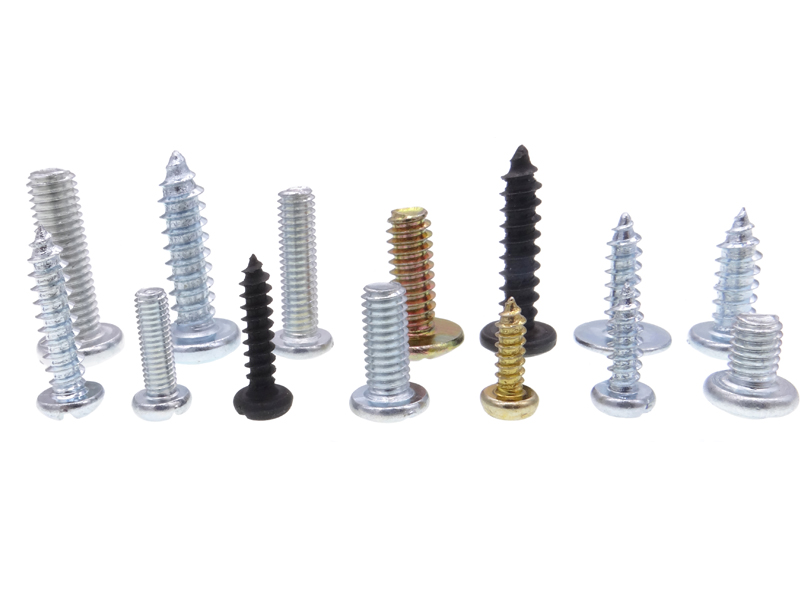The electronics industry uses a variety of custom electronic screws and fasteners depending on the specific application and requirements. Here are some common types of screws used in the electronics industry:
- Machine screws: Machine screws are commonly used in electronics due to their uniform diameter and thread pitch, which allows for accurate threading into pre-tapped holes. They are often used to secure electrical components, PCBs (printed circuit boards), and other electronic assemblies.
- Self-tapping screws: Self-tapping screws have a sharp tip that can cut threads into softer materials, such as plastic or sheet metal, without the need for a pre-tapped hole. This makes them useful for attaching components to thin sheets of metal, plastic enclosures, or other materials that may not be able to withstand a machine screw’s threading process.
- Micro screws: Micro screws are specialized screws with very small diameters and lengths, typically ranging from 0.6mm to 2.5mm. They are commonly used in mobile phones, laptops, and other portable electronics where space is limited.
- Thumb screws: Thumb screws are designed to be tightened and loosened by hand, without the need for tools. They are often used in computer cases, where they allow easy access to internal components.
- Security screws: Security screws are designed to prevent unauthorized removal or tampering of electronic equipment. They may have unique heads that require specialized tools to remove, or they may be tamper-resistant to prevent removal without damaging the head.
These are just a few examples of the many types of screws used in the electronics industry. The specific type and size of screw used will depend on the specific application, material, and load requirements.





